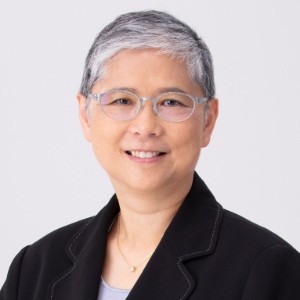Professor Ngan is being honored with the IGCS Excellence in Teaching Award in recognition for four decades of gynecologic oncology mentoring and gynecological surgery training in South and South-East Asia. Recognizing the power and importance of international collaboration, she is a foundational member of the FIGO Staging Committees and has also made significant contributions in education in the arenas of cancer prevention and pre-invasive disease management. Because of her leadership and strong desire for teaching, IGCS is thrilled to have Hextan join our mentorship and training program as the international mentor for the new training site in Guangdong, China, which will be the first IGCS program in the country.
About Dr. Ngan
I am a gynaecological oncologist, Chair Professor in Obstetrics and Gynaecology, Department of Obstetrics and Gynaecology, University of Hong Kong, Queen Mary Hospital. Throughout my career, I was a teacher, trainer, supervisor or program director both in undergraduate medical training as well as in postgraduate professional training. We have joint gynaecological oncology training program with the Royal College of Obstetricians and Gynaecologists and at one time with the Royal Australasian College of Obstetrics and Gynecologist as well as running our own program. Recently, we are trying to introduce a formal training program to Shenzhen China.
My international collaboration started in 1999 when I was member of the FIGO Gynecology Oncology Committee (GOC) and later took up the Chair from 2000-2006 and as ex official 2006-2009. Throughout these years, I learnt the importance and power of collaboration. FIGO GOC worked closely with IGCS, SGO, ESGO as well as WHO in various aspect in training and education.
We all have the same vision of providing education and training to countries all over the world so we could have universal quality service to women especially those with cancers. We try to approach that in three levels. At personal level, we offer gynaecology oncology fellowship for elite fellow from developing countries to visit one with well-established gynaecology oncology program and service. At national level, we run regular workshops in developing countries with volunteer speakers from FIGO, IGCS, SGO and ESGO. At international level, the FIGO Good Clinical Guidelines was welcome by many countries where they do not have their own guidelines. This Guidelines was developed with great contribution from IGCS, SGO, ESGO AND ISSTD. We also run educational symposium or seminar at international conferences such as FIGO world congress and IGCS conference.
To conclude, I must express my gratitude to everyone who have taken part in educating and training our colleagues who have decided to devote their career in taking care of women with cancers. International collaboration is powerful and must be embraced.
